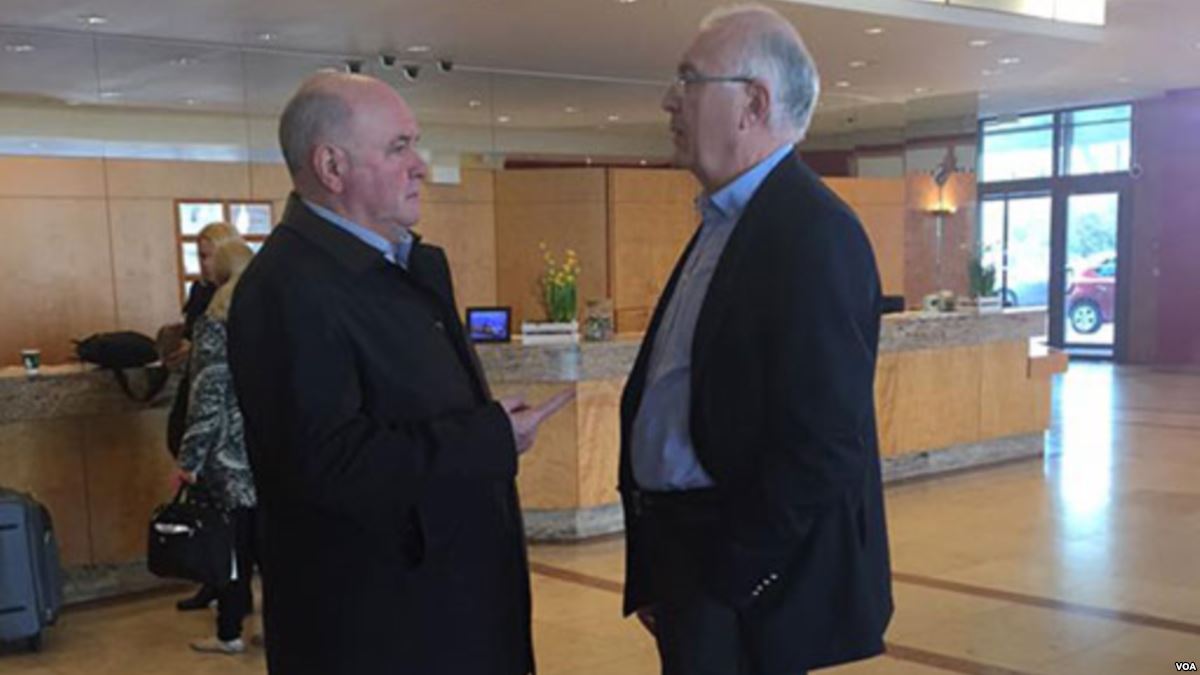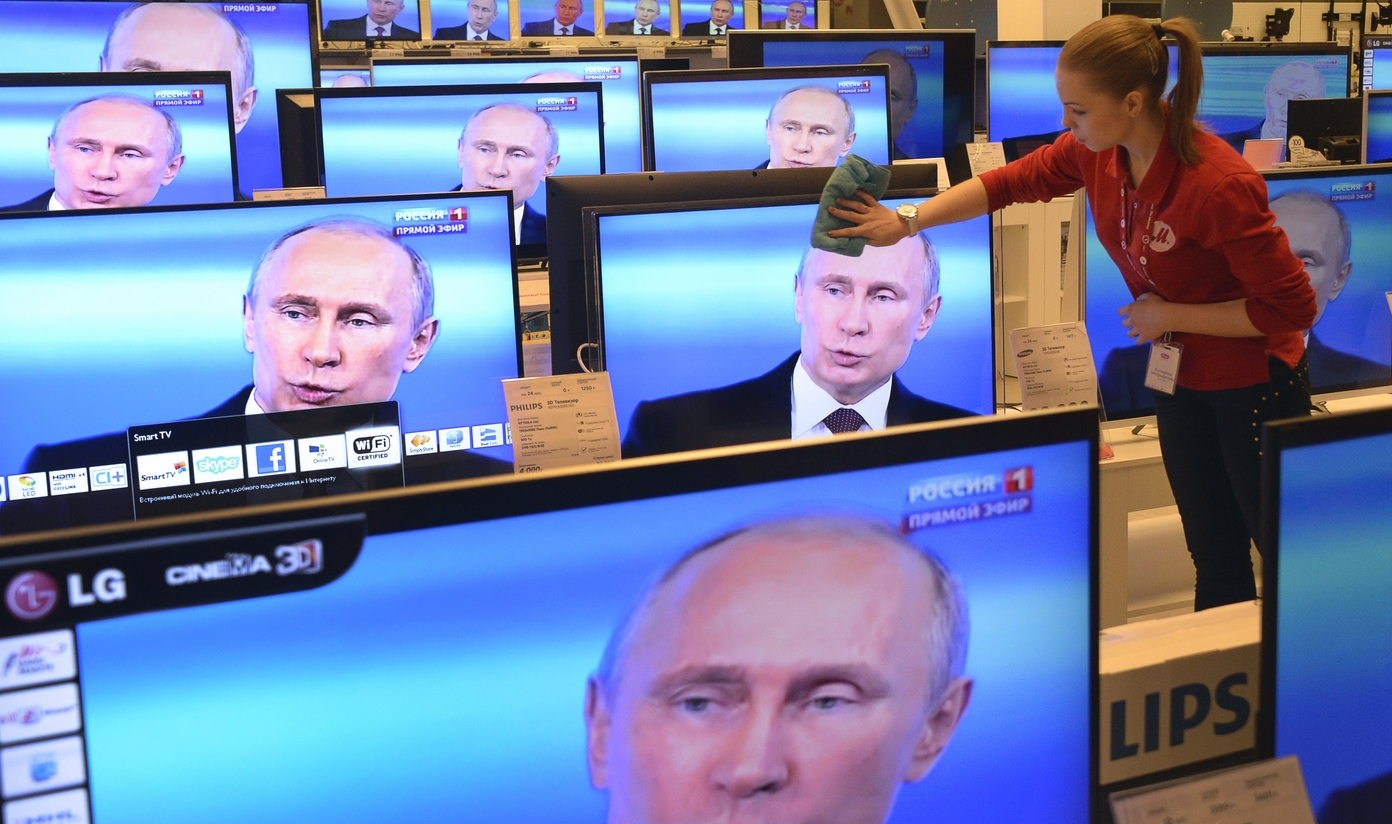Nine steps Georgian government took to improve relations with Russia in its six years in power
When the Georgian Dream party, the current ruling party of Georgia went to the polls in 2012, one of its main promises was to restore relations with Russia which had deteriorated sharply in the wake of the August war of 2008.
At the time, the party said that the unpragmatic policies and aggressive rhetoric of their predecessors, the National United Movement (UNM, headed by Mikheil Saakashvili), had seriously affected the situation with Moscow and risked creating an environment of constant tension and confrontation.
The Georgian Dream party persued a different strategy in its relations with Russia – a more careful and balanced approach. The leaders of the party have, on multiple occasions, reiterated one important result of this policy: there is no longer a risk of direct military confrontation with Russia.
But many experts say that the only positive result of Georgian Dream’s policies has been improved commercial-economic ties, while in other fields there haven’t been any radical changes. In particular:
• Six years after Georgian Dream coming to power, diplomatic relations have yet to be restored;
• The rights of Georgian citizens are still violated in territories occupied and controlled by Russia – Abkhazia and South Ossetia – where there have been numerous cases of murder and kidnapping;
• Russia continues to integrate the occupied territories in its political, economic and military space. In particular, in March 2017 Vladimir Putin signed an agreement to integrate the South Ossetian army into the armed forces of the Russian Federation. The process of so-called border demarcation continues along the administrative boundary with South Ossetia.
In such an environment, the steps of the current government are often received by the public as unnecessary compromises and weakness and are criticized by the opposition parties and civil society.
Strong words of criticism were heard recently after the Georgian PM published an open letter to the Kremlin on 9 March 2018. Opponents of the Georgian Dream government say that in recent years, the occupation of Abkhazia and South Ossetia by Russia has only gotten stronger, and the Georgian authorities are often unable to adequately respond to this process.
We have made a list of the concrete steps taken by the Georgian Dream government over the past six years to regulate relations with Russia.
1. Direct dialogue re-established between Georgia and Russia
Immediately after the Georgian Dream’s rise to power, the former PM of Georgia Bidzina Ivanishvili established the office of the ‘Special Representative of the Prime Minister for Relations With Russia’.
Diplomat Zurab Abashidze, who had earlier served as the ambassador of Georgia to Russia, was appointed to the position. A new format for relations was created in the form of regular meetings between Zurab Abashidze and the Russian Deputy Minister of Foreign Affairs Grigory Karasin. Their task was to restore economic, cultural and humanitarian relations.
Direct communication between the two countries came to a halt after the August war of 2008 after the former government of Georgia declared Russia an aggressor with which it is not possible to maintain communication without the presence of international observers. The only format of relations were the talks in Geneva.

2. Softer rhetoric
The rhetoric of Georgian officials in regards to Russia has greatly softened. Unlike the former government, the current authorities rarely use the terms ‘aggressor’ or ‘occupant’. The authorities do not harshly criticize Russia’s primary leaders either.
“Why should I criticize Putin if we have Saakashvili? Where’s the logic in that?” said one of the founders and leaders of Georgian Dream, Bidzina Ivanishvili in one interview.
In April of 2013, Ivanishvili stated that this approach had bore fruit:
“It’s not a bad beginning for the restoration of relations with Russia. We changed the rhetoric and in doing so we were able to gain access to the Russian market.”
3. Those accused of spying for Russia have been freed
In 2012, several individuals were released from prisons in Georgia on amnesty after they had been accused of spying for Russia. These case files are still secret and are not open to the public. Many particulars of their cases remain unknown.
The authorities released these individuals without pre-conditions and without demanding from Russia a similar release of Georgians serving similar sentences there. Negotiations on this issue within the Karasin-Abashidze talks began later, and it was only in February of 2014 that Abashidze announced that two Georgian citizens who had been convicted of spying in Russia would be freed.
4. Channel One Russia and TV channel ‘Russia’ returned to viewers in Georgia
In 2012, several weeks after the 1 October elections which changed the power dynamic in the country, Georgia began rebroadcasting certain Russian news channels which had been shut off in August 2008 by the former government under the leadership of Saakashvili.

5. Georgia did not boycott the Olympics in Sochi in 2014
Despite disagreement in society, the government supported the participation of Georgia at the 2014 Winter Olympics in Sochi. Before, the Saakashvili government had been ready to boycott the event. In 2011, the Georgian parliament recognised the genocide of Circassians by the Russian Empire in Sochi and in surrounding territories.
President Putin approved of Georgia sending its Olympic team to Sochi:
“I believe that this is a good sign … the Olympic Games can help restore relations in places where they were earlier thought impossible or difficult,” Putin stated.
6. The authorities hold Saakashvili responsible for the war of August 2008
The current government of Georgia often states that Saakashvili is responsible for the 2008 war and believe it necessary to investigate war crimes. When he was the Prime Minister, Ivanishvili accused the former government on several occasions of causing the war.
“I took into account the preparation of troops for combat readiness and beginning hostilities before Russia even unjustifiably crossed the border. I saw all of the television reports, and there was nothing special going on. An explosive shell hit a house and damaged a wall. And nobody died. The only correct decision, probably, would have been to involve the international community. I don’t understand the background to all of this, it brings up a lot of questions for me,” Ivanishvili said in April 2013.
The Russian PM said something similar in August 2013, five years after the war:
“It is enough to remember what Prime Minister Ivanishvili said. He was right in what he said, that the conflict had been provoked by Saakashvili. It was probably difficult for him to say, but these were brave words.”
7. Restraint in its position on Ukraine
Unlike the former government, the current government of Georgia shows restraint when it comes to assessing recent events in Ukraine. Georgia supports the territorial integrity of Ukraine but does not approve of Georgian volunteers fighting for Ukraine.
In December 2014, after it became known that a Georgian soldier had died in Ukraine, the government said that sending Georgian soldiers to Ukraine was a ‘mistake’ and placed all responsibility for the event on the former government.
8. The strengthening of pro-Russian NGOs and media
The current authorities are more open to pro-Russian NGOs and media outlets whose activity has grown significantly in the past two years.
For example, the government’s top leaders have not refused to give interviews to openly anti-Western newspaper Asaval-Dasavali, which is well-known for its xenophobia and homophobia, and have even praised its editorial policy on occasion.
NGOs with ideological and financial connections to Russian propaganda organisations are also freer to maneuver and conduct their activities.
For example, the Gorchakov Fund has been actively working in Georgia for two years. Their website says that so-called ‘soft-power’ is becoming increasingly more important on the international arena and for that reason it is important to strengthen the activities of local (Russian) NGOs. The activities of this organisation are limited in the Baltic countries.
9. Georgia has not joined in on Russia sanctions
Ukrainian President Petro Poroshenko invited Georgia to join the sanction-extending mechanism against Russia while at a meeting in Kiev with the Chairman of the Georgian Parliament Irakli Kobakhidze on 19 January 2018.
Poroshenko said that: “This would help attract attention and encourage Europe to extend sanctions against Russia. In regards to Georgia, we could add aspects pertaining to Abkhazia and South Ossetia.”
Georgia did not take Ukraine up on its offer.




















